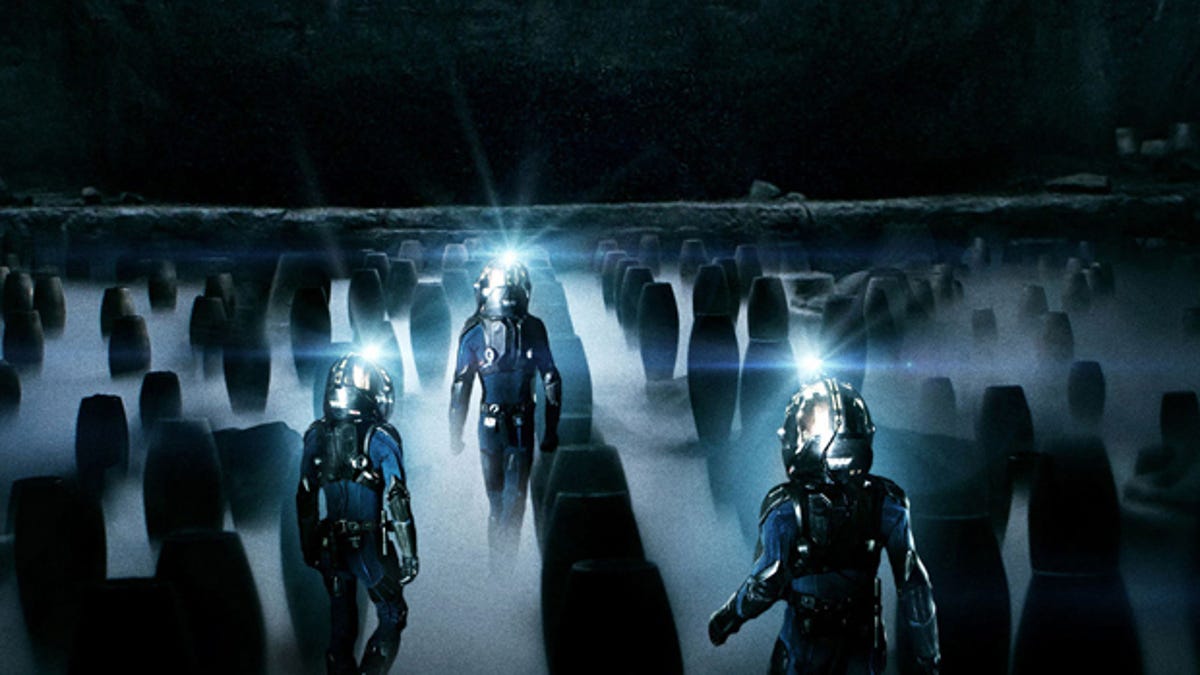From 'Alien' to 'Prometheus': The search for extraterrestrial life
Ridley Scott's new movie "Prometheus" may reignite questions about life beyond the boundaries of our galaxy.

Are we alone? That question has plagued scientists and space enthusiasts for generations. The release of Ridley Scott's "Prometheus," which opens nationwide today, may reignite questions about life beyond the boundaries of our galaxy.
The film marks the legendary director's return to the science fiction genre. Scott directed the 1979 film "Alien," which pit protagonist Ellen Ripley, played by Sigourney Weaver, against one of the most iconic extraterrestrial antagonists of all time, the titular alien.
In Scott's new film, the crew of Prometheus embarks on a mission to search for alien life, but is instead greeted with unexpected horrors. A series of mysteries unfold throughout the film, which is set in the future, with all of the advanced technology to be expected from the imagination of the legendary filmmaker.
"We looked at a lot of NASA and European Space Agency designs, and played around with those ideas in the context of what space travel would be like a generation from now," production designer Arthur Max said.
The science behind the story isn't too far from reality either. Scientists have long searched for aliens. The Search for Extraterrestrial Intelligence (SETI) Institute has been exploring the "origin, nature and prevalence of life in the universe" since 1984.
NASA's Kepler mission, which launched on March 6, 2009, has given scientists a powerful tool in assisting the search for finding a planet in the "Goldilocks zone," or habitable area.
The Kepler mission surveys a portion of the Milky Way galaxy to search for planets in the habitable zone and discover how many possible stars in our galaxy have similar planets. Currently, the Kepler science team reports 1,790 host stars with 2,321 planet candidates that may have conditions similar to Earth -- of those, 61 planets have been confirmed.
"That's what makes good drama," Scott said. "Our story circles the truth of what might be out there, and therein lays its most frightening aspect. Feasibility always creates the finest and most dangerous drama and the opportunity for me to scare the hell out of everyone."
Even when "Alien" was released, the fascination with extraterrestrial life was already entrenched. One of the first attempts to find life in space took place in 1960, when American astronomer Frank Drake, chairman emeritus of the SETI Institute, used a radio telescope to search for signals from nearby stars. Since then, the search methods at scientists' disposal have become more advanced.
"Scientists are optimistic that sometime in the next few years that they will find an Earth-like planet," Seth Shostak, senior astronomer at the SETI Institute, told CBS News. "The technology has become enormously more powerful. We can search more quickly over a wider range of frequency than before."
When it comes to the search for life in outer space "there are false alarms, but no close calls," Shostak said. "What you think is not as interesting as what you can measure." Finding aliens on those planets is still a big question mark.
Scott seems to be drawn to the dark side of space exploration. In his films, extraterrestrial beings tend to be hostile to humans.
"This brings us to the question," Scott said, "what are the consequences of meeting a superior being, whose capabilities are quantum leaps beyond one's own, and are in effect god-like?"
This story originally appeared on CBSNews.com.

